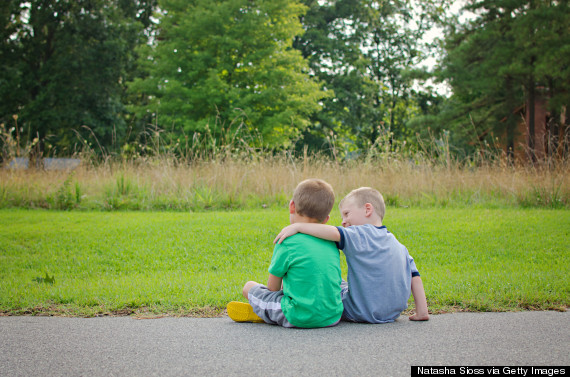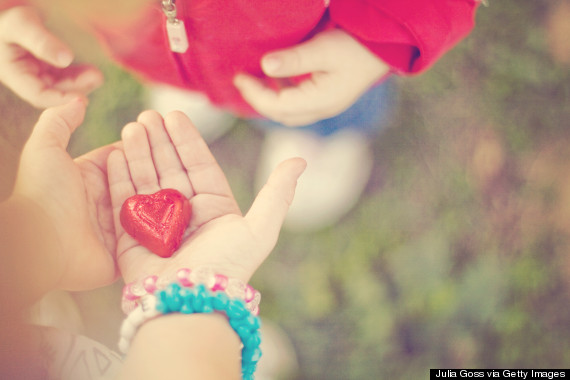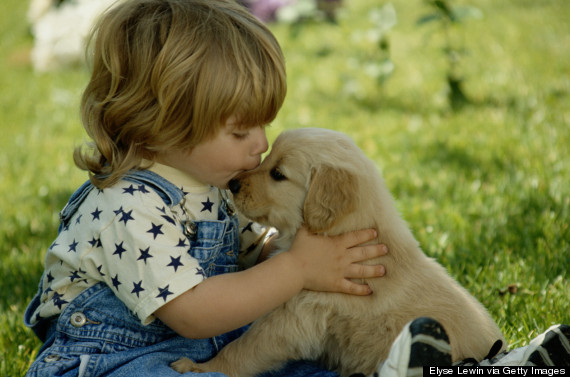
There are exactly three ways to define the word "nice," according to the dictionary.
The first is the ability to "give pleasure or joy." The second is defined as "attractive or of good quality." The third is simple and straightforward -- someone who is nice is "kind, polite and friendly." Sounds pretty uplifting. So why does niceness get as much flack as it does praise?
What is technically a positive trait can also be seen as equally, well, negative. If you're too nice, you run the risk of coming off as disingenuous or insecure. You also may be appear to be a pushover (or worse, you might actually be a pushover). Not to mention, there's also that whole "finish last" cliché.
But before you write off those good-natured intentions, you might want to take a look at their benefits. Below are six things you should know about being nice:
It may be a natural behavior.
As we grow up, we learn values and morals that help us become nice people, whether it be proper manners, compassion, consideration or a combination of them all. But research from the University of Buffalo suggests that our capacity for goodness may also lie in our DNA. In the study, scientists found that some people may be born with certain genes that give you specific receptors to oxytocin and vasopressin -- two hormones in your body that are associated with feelings of love and generosity.
However, that's not to say that you're only a nice person if you possess the right genes. Researchers also found that genetics work in tandem with your upbringing and life experiences, and the combination of both can suggest how social you become, Live Science reported. Either way, whether we're wired for "niceness" or just brought up on it, our good nature is something that's ingrained in us from an early age.
It could help us live longer.
One hallmark of being nice is practicing charitable actions. When you're helping someone, you're not only bettering their lives, you may also be improving your own: Studies show that those who volunteer reap health benefits that may help you live longer, ABC News reported. Making the world a better place and increasing our longevity? Sign us up.
We're happier when we're kind.
The motive may be a little selfish, but being nice to others doesn't just benefit them, it clearly works in our favor, too, by instantly boosting our mood. You don't have to travel too far out of your way to be nice, either -- sometimes just a few kind words will do.
It may be the key to success.
It pays to be kind: Those who are compassionate and better in-tune with other people's emotions may be more successful at work. "People trust you more, they have better interactions with you, you even get paid better," Dacher Keltner, a professor at the University of California-Berkeley and co-director of the Greater Good Science Center, told ABC News. Not a bad trade-off.
It may bring you less stress.
There's a certain thrill that comes with fighting to be at the top, but it isn't without its own challenges. One of the costs? Your stress levels. One study on baboons found that "alpha males" experienced higher stress levels, suggesting that those "nice guys" may be healthier.
While the study isn't entirely conclusive on the health benefits niceness has for humans, it does offer some interesting insight on what it means to finish second. Additionally, practicing compassion through meditation has also been shown to reduce stress.
It just feels better.
When was the last time you heard someone lament over a little courtesy? Sure, being "too nice" can have its pitfalls, but practicing kindness also has a multitude of feel-good benefits, according to clinical psychologist Lara Honos-Webb, Ph.D. "When we help others and do kind acts, it causes our brain to release endorphins, the chemicals that give us feelings of fervor and high spirits -- similar to a 'runner's high,'" she writes in a Psychology Today blog. "Doing something nice for someone also gives the brain a serotonin boost, the chemical that gives us that feeling of satisfaction and well-being."
Plus, studies show that having specific goals -- like setting out to make someone smile -- may boost our happiness. If being "nice" means feeling more joyful and better about ourselves in the long run, we'll gladly take the label.
This GPS Guide is part of a series of posts designed to bring you back to balance when you're feeling off course.
GPS Guides are our way of showing you what has relieved others' stress in the hopes that you will be able to identify solutions that work for you. We all have de-stressing "secret weapons" that we pull out in times of tension or anxiety, whether they be photos that relax us or make us smile, songs that bring us back to our heart, quotes or poems that create a feeling of harmony or meditative exercises that help us find a sense of silence and calm. We encourage you to visit our other GPS Guides here, and share with us your own personal tips for finding peace, balance and tranquility.
